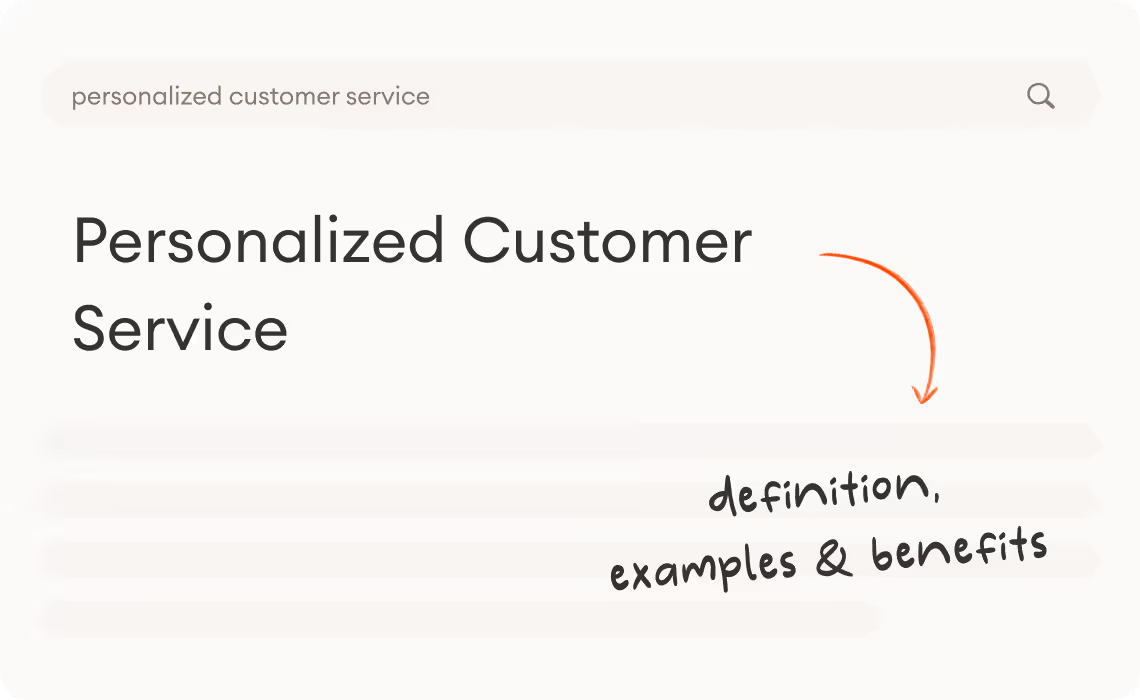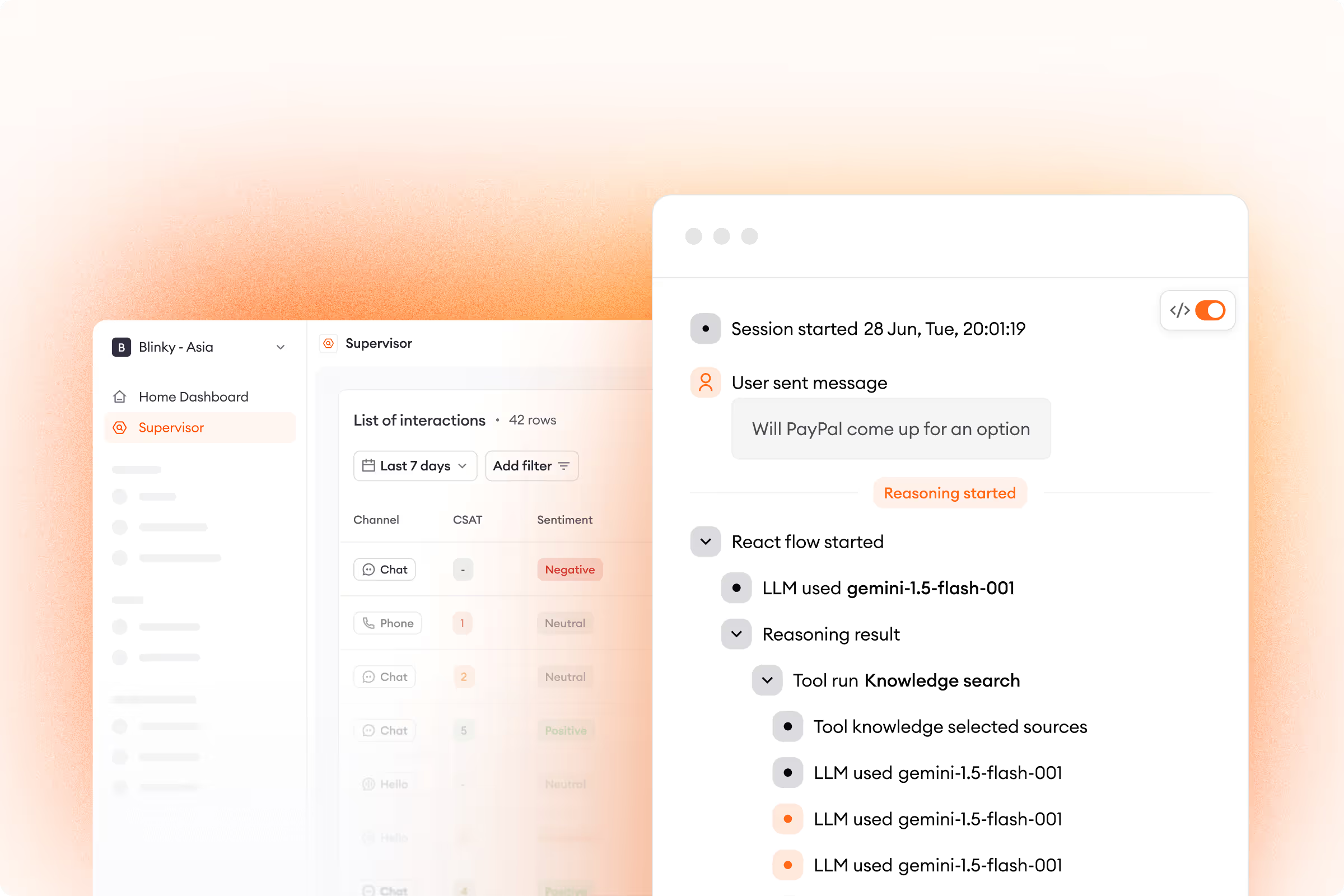Are you sick of customer service tools that dish out cookie-cutter responses and make you feel like just another number?
We are sorry, valued customer. All our agents are currently engaged. Your case is important to us. Please wait for the next available representative.
BO-RING! There ain’t much that’d send customers running for the exits faster.
If you really want your ecommerce business to offer exceptional customer service, you can’t settle for standardized support. No — today’s shoppers expect fully customized interactions. 73% of customers want businesses to understand their unique needs, yet only 44% say most companies treat them like individuals.
To create real value and unforgettable customer experiences, you’ve got to deliver personalized customer service — service that customers crave and keeps them coming back for more.
This blog post will define personalized customer service, highlight key examples, and identify the benefits it can bring to brands.
What is personalized customer service?
Personalized customer service means giving shoppers a tailored support experience based on insights collected from their past interactions. By tracking customer information, support teams can offer unique conversations with relevant content for each individual customer.
What insights are we talking about?
Artificial intelligence (AI) tools can gather things as simple as a customer’s past interactions and purchase history, but we’re just getting warmed up. These solutions can even detect a customer’s current mood, buying intent, and personal style preferences to enable customized messages tailor-made for each shopper.
Sadly, one-size-fits-all customer interactions are still commonplace, meaning way too many shoppers are still getting the same blanket responses. Take a look at this example with a chatbot:
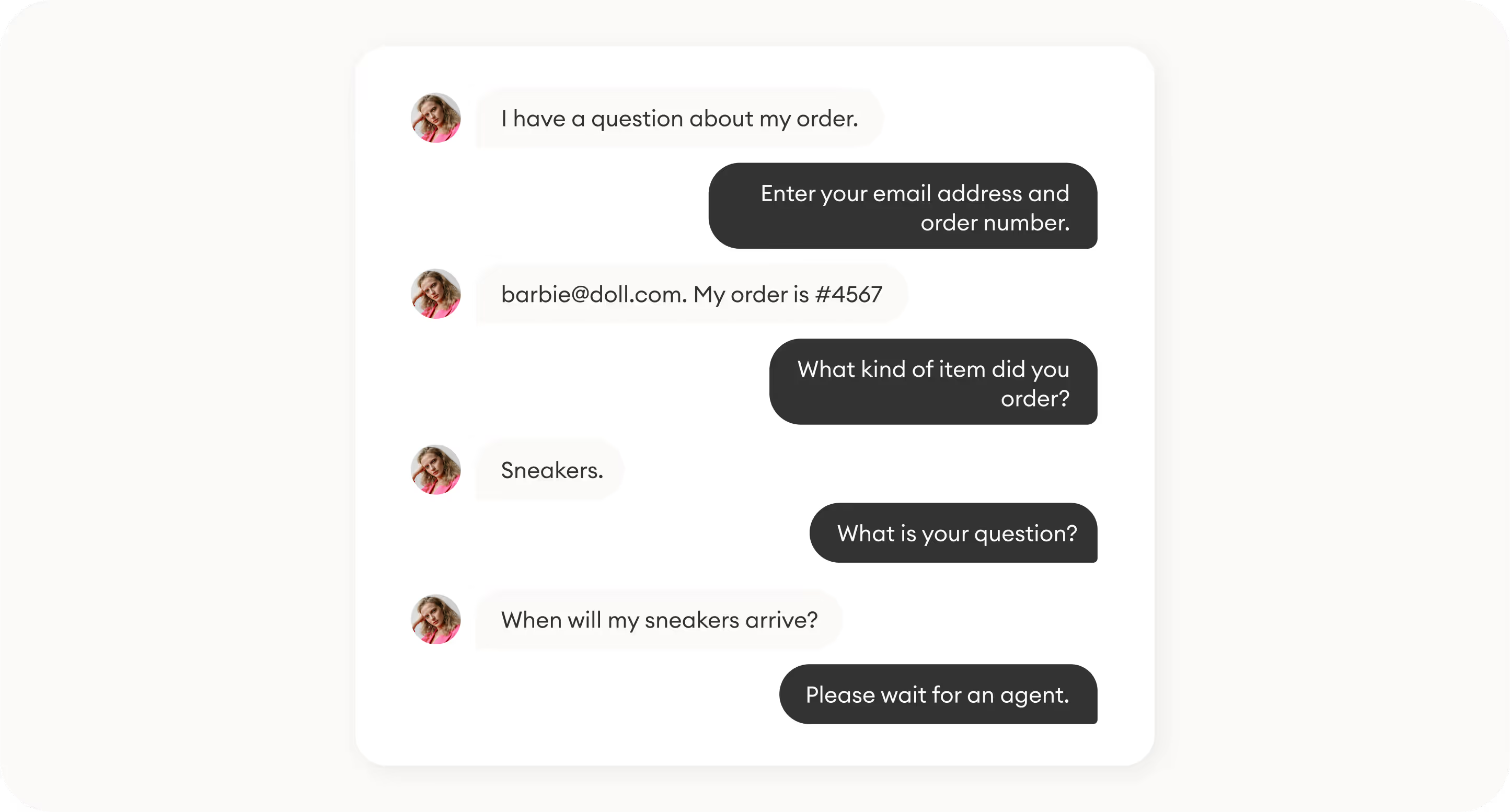
The customer gets help — eventually — but the exchange is time-consuming and unengaging, and it leaves the customer feeling like nothing more than a support ticket.
On the other hand, a personalized example, crafted with the help of AI, looks like the following:
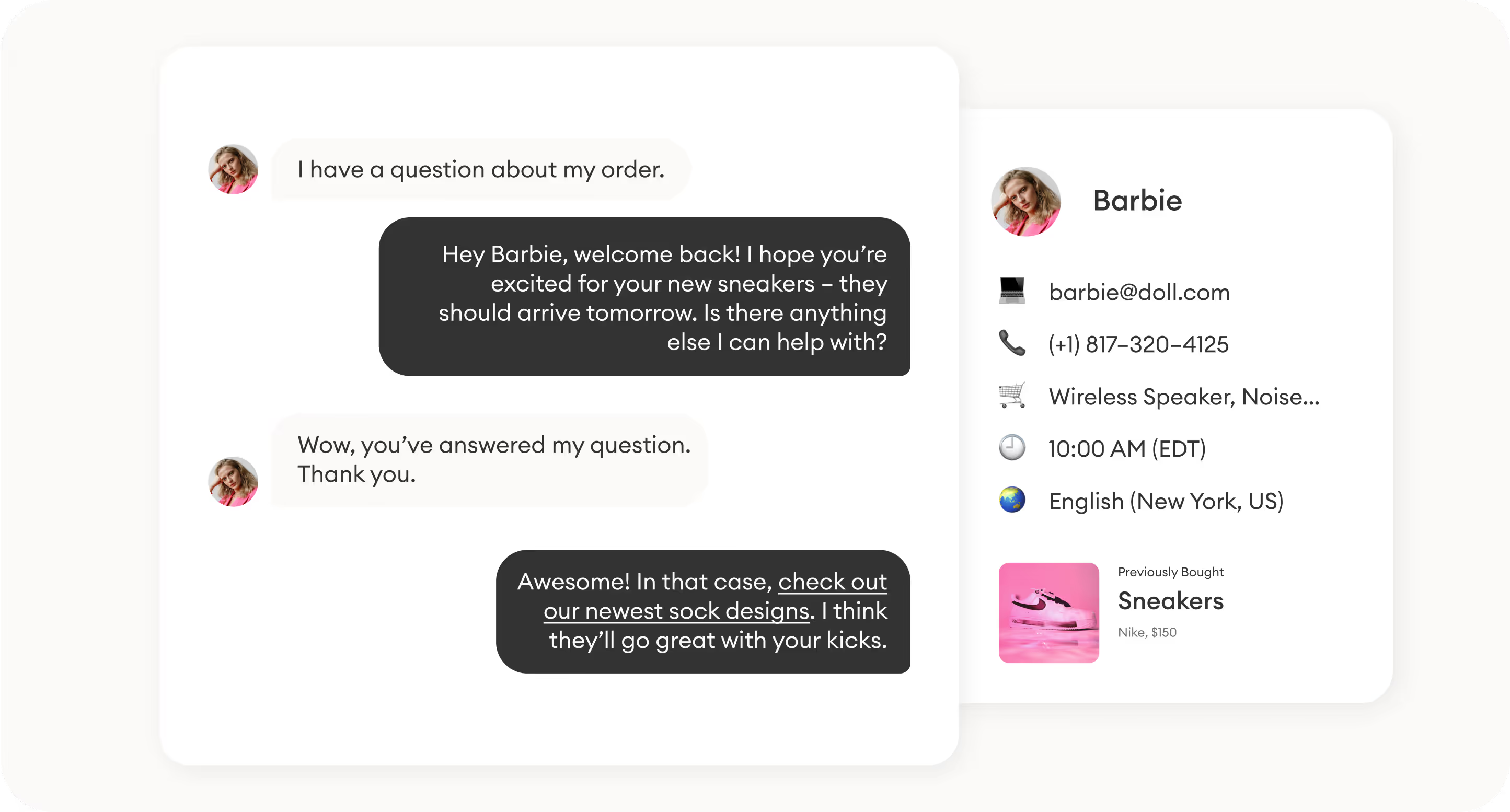
Not only does the customer enjoy a unique, customized experience, but the issue gets resolved much faster and the chatbot is even able to sneak in a product suggestion to encourage additional sales.
This is what customer service personalization looks like. It starts with storing basic customer data, but it builds up to ecommerce businesses giving efficient, empathetic, and engaging interactions across all their support channels — phone calls, live chat, social media, you name it.
And it’s becoming more common than you may think. Ever wonder how Amazon comes up with its personalized You might also like recommendations? The ecommerce giant creates this customer experience with AI that tracks each individual customer’s behavior.
For examples of leading direct-to-consumer brands that deliver outstanding personalized experiences, check out our What is D2C? blog post.
4 Ways to Personalize Your Customer Service
1. Know who your customers are
One of the simplest ways to personalize support might also be the most important. It’s about IDing your customers and creating a complete persona for each.
This starts with addressing shoppers by name, something agents do only 21% of the time. Sure, customers feel respected, but recording a customer’s name so different reps can access it removes one of the top pain points in customer service — having to repeat yourself.
Once you’ve got a customer’s name, AI can also track where they’re from, what they like, and how they prefer communicating with you. Equipped with this info, reaching out to customers with detailed, tailored messages becomes a breeze.
2. Collect customer feedback
Personalizing customer experience isn’t just about personal details. Brands can also transform their customer support by asking shoppers for feedback. And AI can help here as well.
77% of customers have a more favorable view of brands that proactively ask for and accept feedback, but most believe companies don’t do anything with this info.
Personalization is precisely how you show customers you’re acting on their feedback.
For example, you can give customers a automatically generated post-chat survey that resembles this exchange:
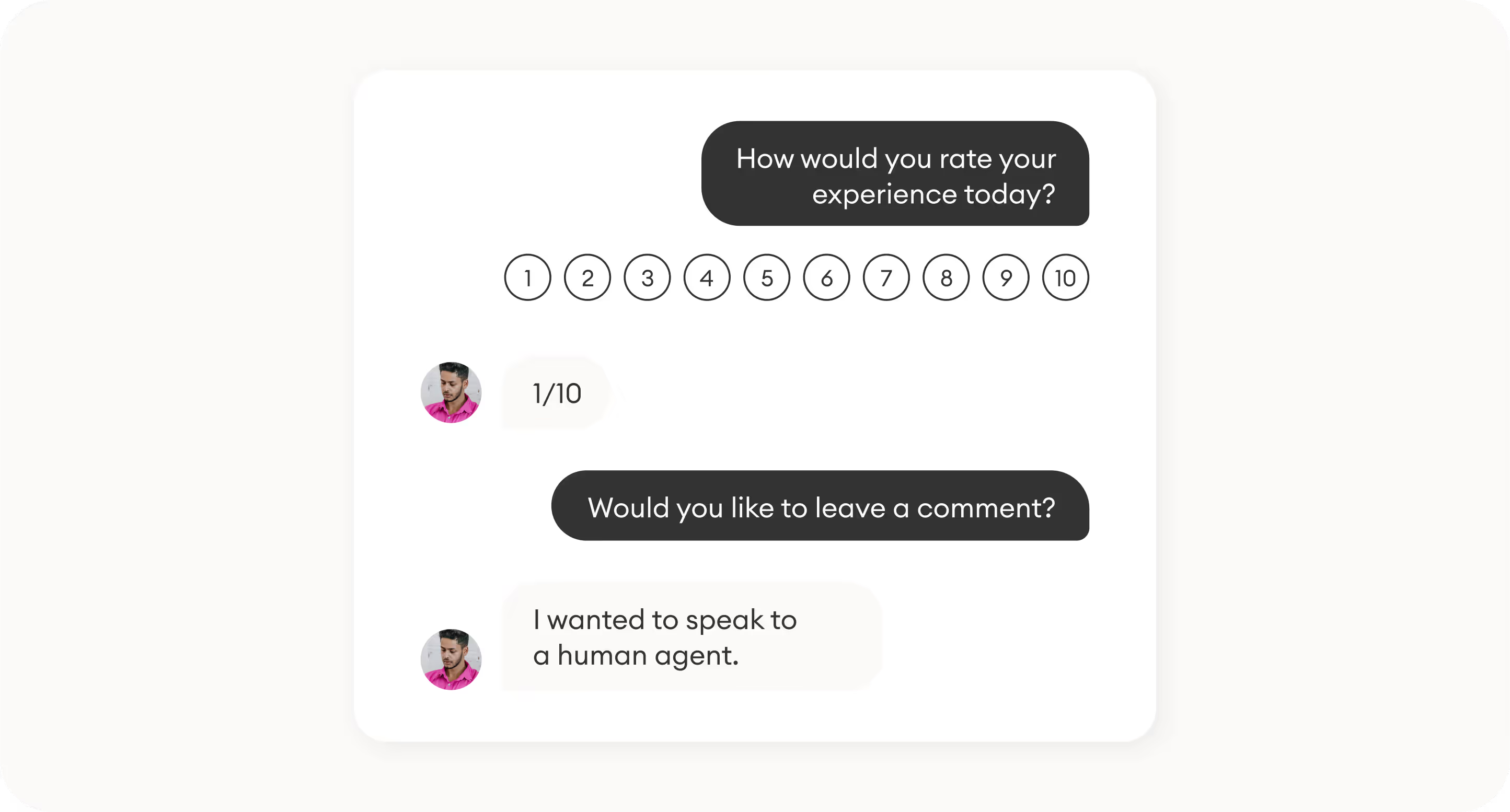
With Ken’s feedback, this company can remember that Ken prefers interacting with human customer service representatives. The next time Ken asks anything over live chat, he won’t interact with a chatbot — he’ll be immediately transferred to an agent, giving him a tailor-made omnichannel experience.
Collecting feedback lets brands develop real-time solutions by tapping into the voice of the customer (VOC). On a broader scale, AI solutions can analyze feedback, provide actionable insights, and promote better-informed decisions across the organization.
3. Reward customer loyalty
Personalized support allows brands to reward their most dedicated shoppers.
Nearly half of shoppers expect special treatment for their brand loyalty.
Delight them with a personal touch. Observe customers’ birthdays with an email message or a free gift. Offer exclusive discounts, differentiated pricing, or early access to products.
To take things up a level, customize your website to fit loyal customers’ tastes. For example, you don’t need to show shoppers a standardized product catalog. Instead, present return customers with relevant products based on their earlier purchases: showcase complementary items, send out reminders if anything’s close to running out, and ping buyers about new releases.
And since return customers spend 67% more than new ones, boosting customer loyalty can bring major payoffs down the road.

4. Recommend the most suitable products
Similarly, brands can insert personalized product recommendations into customer chats. A chatbot, for instance, can automatically suggest products that suit a shopper based on a number of criteria, such as personal data, order history, and customer behavior.
If a customer asks for product advice, you don’t have to go in blind and hope you randomly suggest the best items. Let automation tools leverage customer info to determine whether something like dog toys or cat grooming supplies are more appropriate recommendations.
Got a shopper who prefers chatting with a human agent? No problem. Tech platforms can place these same insights at an agent’s fingertips to use as a cheat sheet as they handpick the most suitable items from your product catalog.
Personalize your customer service with AI
You could try doing all of the above on your own, but manually handling personalization is time-consuming and can get cost-prohibitive — fast.
Today’s top AI platforms, though, can take care of most personalization tasks for you. By syncing up with your knowledge base and boasting built-in ecommerce integrations, leading customer care tools can:
- Store info like customer name, past purchases, and chat history
- Conduct customer surveys and gather feedback
- Recommend targeted products to customers
- Share data across customer service teams and agents
AI solutions can effectively automate all of these at scale. Better yet, by performing your most repetitive work, AI gives agents the time and resources needed to deliver one-of-a-kind personalized experiences too.
To learn how to make the most of AI in customer care, read our free ebook, An Introduction to AI in Customer Service.
3 Benefits of Personalized Customer Service
A personalized service experience brings several benefits to brands and customers alike.
1. Improved trust
One-third of customers who abandon a brand do so because of a lack of personalization. Personalized customer care is a powerful way to gain shoppers’ trust, boost customer retention, and turn potential buyers into brand advocates.
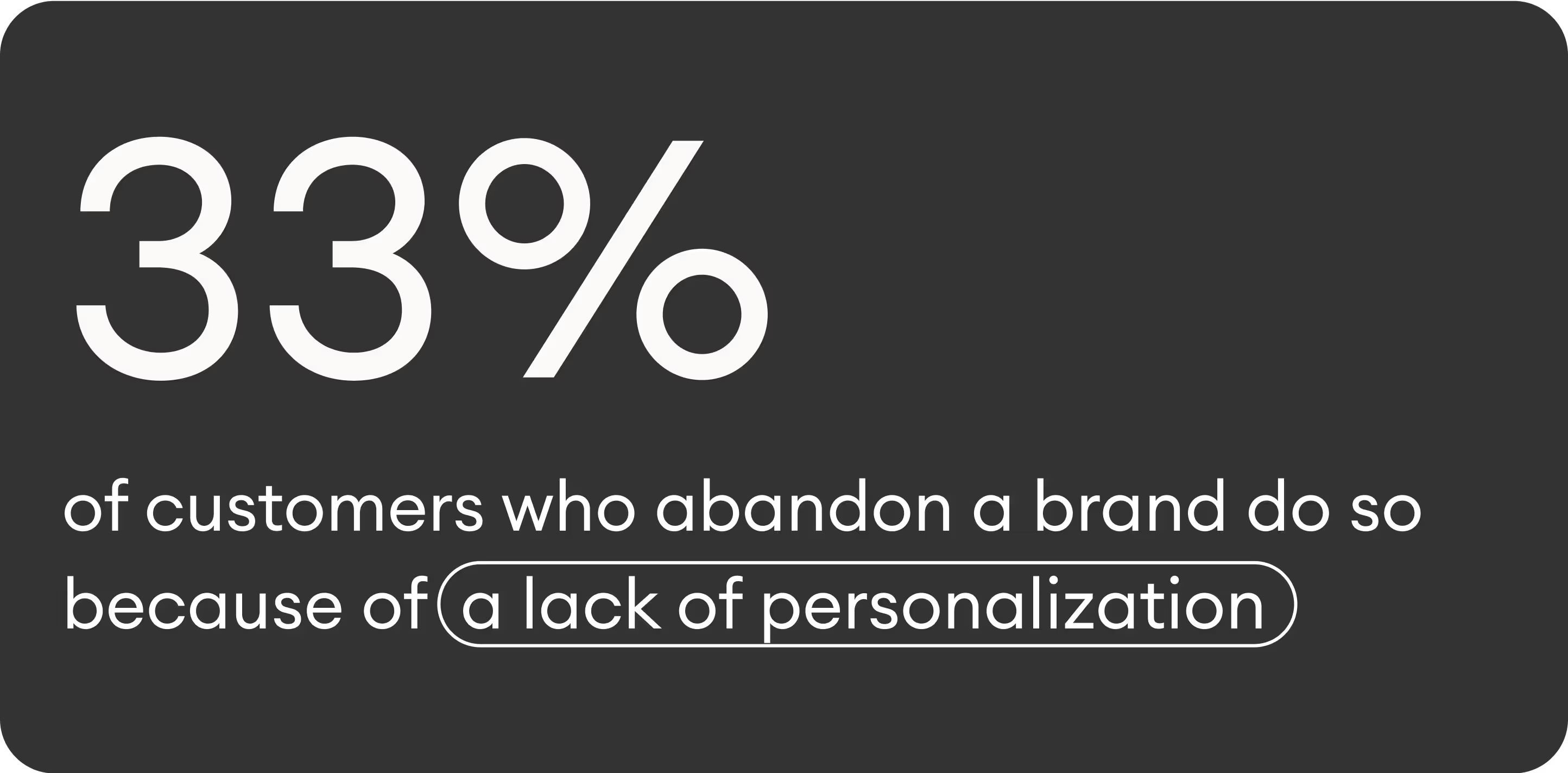
It’s all tied to the excellent experiences personalization helps businesses create. Companies that deliver a “very good” customer experience are likely to earn the trust of almost 90% of customers.
Addressing customers by name, responding to and acting on feedback, and offering personalized product recommendations are consistently lined to higher customer engagement and lower churn as well.
2. Increased customer satisfaction
Customizing service to suit unique customer needs is an extremely effective way to flat-out delight shoppers.
Which makes perfect sense when you think about it. What frustrates customers most when it comes to service?
- 72% of customers equate poor customer support to explaining a problem to multiple people
- 79% who complained about service online were ignored
- 12% say their most common cause of frustration is “lack of speed”
Customer service personalization addresses all of these frustrations. More agents are aware of customer preferences, feedback gets addressed, and teams can resolve cases faster.
3. Higher revenue
Delivering a personalized experience to customers positively impacts a brand’s bottom line.
Much of this comes from personalized recommendations — shoppers simply respond better to suggestions that speak directly to them. Remember Amazon? Product recommendations, either on their site or sent via email, bring in 35% of their revenues.
On average, implementing customized customer experiences raises conversion rates by 8%. These conversions translate to a 10-15% increase in revenue and a 15-20% decrease in costs for brands that build a personalized customer journey.
Enjoy personalization’s perks with Zowie
The statistics don’t lie — personalizing your customer service is vital to meeting customer expectations.
AI platforms like Zowie deliver a completely personalized customer service experience, helping you put a face to your shoppers, foster deeper customer relationships, and generate customized exchanges.
AI-powered automation is key to maximizing your personalization capabilities.

.avif)

.avif)
.svg)
